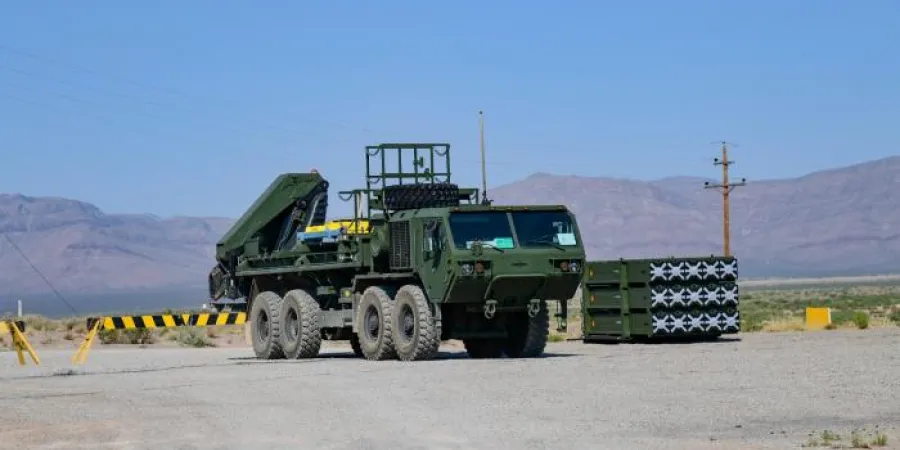First live-fire test of Iron Dome carried out in US
The series of tests was carried out at the White Sands Test Range in New Mexico, with the participation of Rafael, IAI and mPrest, the companies that developed the Iron Dome system
Ami Rojkes Dombe
|
24/08/2021
The U.S. Army, in conjunction with the Israel Missile Defense Organization of the Ministry of Defense and Rafael Advanced Defense Systems, successfully completed a live-fire test of the first Iron Dome battery that the U.S. acquired from Israel.
The series of tests was held at the White Sands Test Range in New Mexico with the participation of Rafael, IAI and mPrest, the companies that developed the Iron Dome system. The tests included the first interception by an Iron Dome battery operated by U.S. troops.
The Iron Dome system, in its U.S. military configuration, is expected to protect American troops from a variety of aerial threats including cruise missiles, unmanned aircraft, rockets and mortar fire. In 2019, the Israeli Defense Ministry and the U.S. Defense Department signed the first agreement of its kind for the supply of two Iron Dome batteries. The batteries were delivered at the end of 2020, and during the last few months they have been undergoing acceptance testing and operator training in the U.S.
Rafael Advanced Defense Systems is the primary developer and manufacturer of the Iron Dome system, in cooperation with ELTA, a subsidiary of Israel Aerospace Industries that developed and manufactured the Multi-Mission Radar, as well as with mPrest, which supplies the command-and-control system.
The Israel Missile Defense Organization, part of the Directorate of Defense R&D in the Defense Ministry, leads the development of Israel’s multi-layered defense array, which is based on four operational layers: Iron Dome, David’s Sling, Arrow 2 and Arrow 3.
The series of tests was carried out at the White Sands Test Range in New Mexico, with the participation of Rafael, IAI and mPrest, the companies that developed the Iron Dome system
The U.S. Army, in conjunction with the Israel Missile Defense Organization of the Ministry of Defense and Rafael Advanced Defense Systems, successfully completed a live-fire test of the first Iron Dome battery that the U.S. acquired from Israel.
The series of tests was held at the White Sands Test Range in New Mexico with the participation of Rafael, IAI and mPrest, the companies that developed the Iron Dome system. The tests included the first interception by an Iron Dome battery operated by U.S. troops.
The Iron Dome system, in its U.S. military configuration, is expected to protect American troops from a variety of aerial threats including cruise missiles, unmanned aircraft, rockets and mortar fire. In 2019, the Israeli Defense Ministry and the U.S. Defense Department signed the first agreement of its kind for the supply of two Iron Dome batteries. The batteries were delivered at the end of 2020, and during the last few months they have been undergoing acceptance testing and operator training in the U.S.
Rafael Advanced Defense Systems is the primary developer and manufacturer of the Iron Dome system, in cooperation with ELTA, a subsidiary of Israel Aerospace Industries that developed and manufactured the Multi-Mission Radar, as well as with mPrest, which supplies the command-and-control system.
The Israel Missile Defense Organization, part of the Directorate of Defense R&D in the Defense Ministry, leads the development of Israel’s multi-layered defense array, which is based on four operational layers: Iron Dome, David’s Sling, Arrow 2 and Arrow 3.



